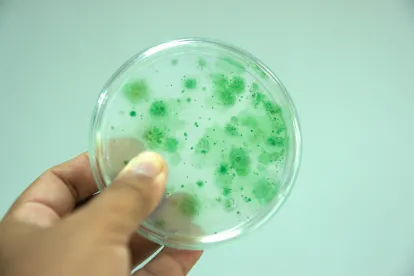The U.S. Department of Energy’s (DOE) Bioenergy Technologies Office (BETO) and Office of Fossil Energy and Carbon Management (FECM) announced on February 13, 2024, their intent to issue funding to support research and development (R&D) projects for converting algae and other wet waste feedstocks to low-carbon fuels, chemicals, and agricultural products. DOE states that the intended Mixed Algae Conversion Research Opportunity (MACRO) funding would address gaps in the use of carbon dioxide (CO2), conversion technologies, and product development that limits the use of wet algal feedstocks. According to DOE, “[a] wide range of feedstocks, such as seaweed, other algae, and other wet waste feedstocks, will be needed to achieve the Biden-Harris administration’s goal of an equitable, clean energy future of net-zero emissions, economy-wide, by no later than 2050.” DOE notes that the intended funding will support these goals, as well as the government-wide targets of the Sustainable Aviation Fuel Grand Challenge and the Executive Order on Advancing Biotechnology and Biomanufacturing Innovation for a Sustainable, Safe, and Secure American Bioeconomy. The funding would focus on the following topic areas:
- Topic Area 1 — Conversion of Seaweeds and Waste Algae to Low-Carbon Fuels and Products: Topic Area 1 aims to address gaps in storage, mobilization, and conversion of seaweeds and other wet algal feedstocks to low-carbon products and enable these readily available feedstocks to access new markets. Applications are sought that will develop laboratory or bench scale technologies and/or processes for utilizing: macroalgae (seaweeds), blends of macroalgae and wet wastes, and/or wet algal wastes for conversion to fuels and products with significant, on a national scale, potential to displace fossil greenhouse gas emissions; and
- Topic Area 2 — Conversion of Algal Biomass for Low-Carbon Agricultural Products: The goal of Topic Area 2 is to use CO2 emissions streams from utilities or industrial sources to grow algae for source material and create value-added products. Applications are sought that use anthropogenic (e.g., fossil fuel derived) CO2 emissions to be used in the algae cultivation process and then convert those macro and/or micro algae into low-carbon agricultural applications or products such as animal feed. Applications are encouraged to focus on optimization of the technologies and processes for the conversion of cultivated algae biomass to products and clearly describe the end use products targeted.
DOE states that the intended Funding Opportunity Announcement (FOA) is expected to be released in March 2024 and could include up to $18.8 million in federal funding. BETO and FECM envision awarding multiple financial assistance awards for R&D activities in the form of cooperative agreements lasting approximately two to three years.




 />i
/>i
